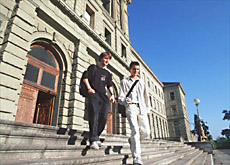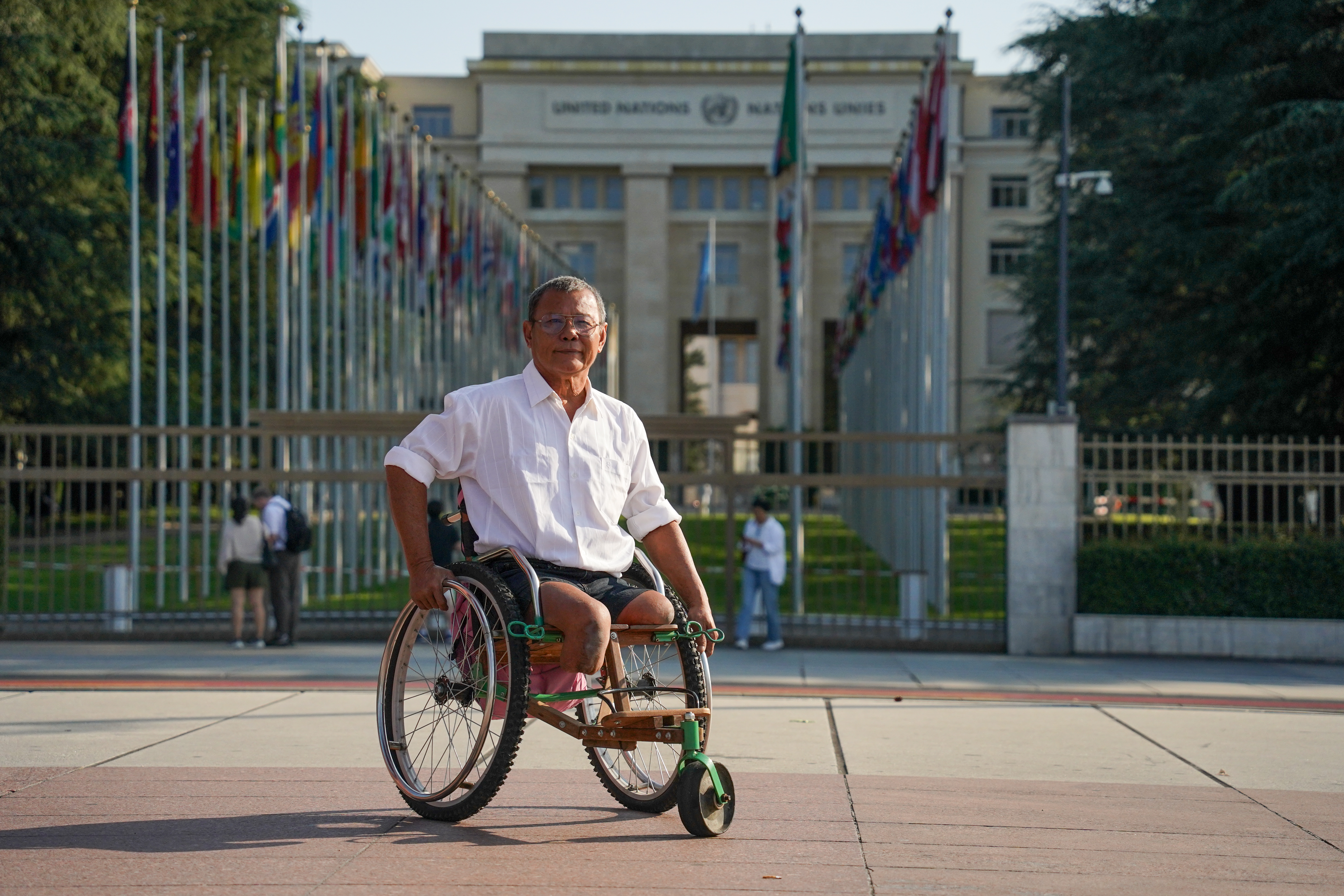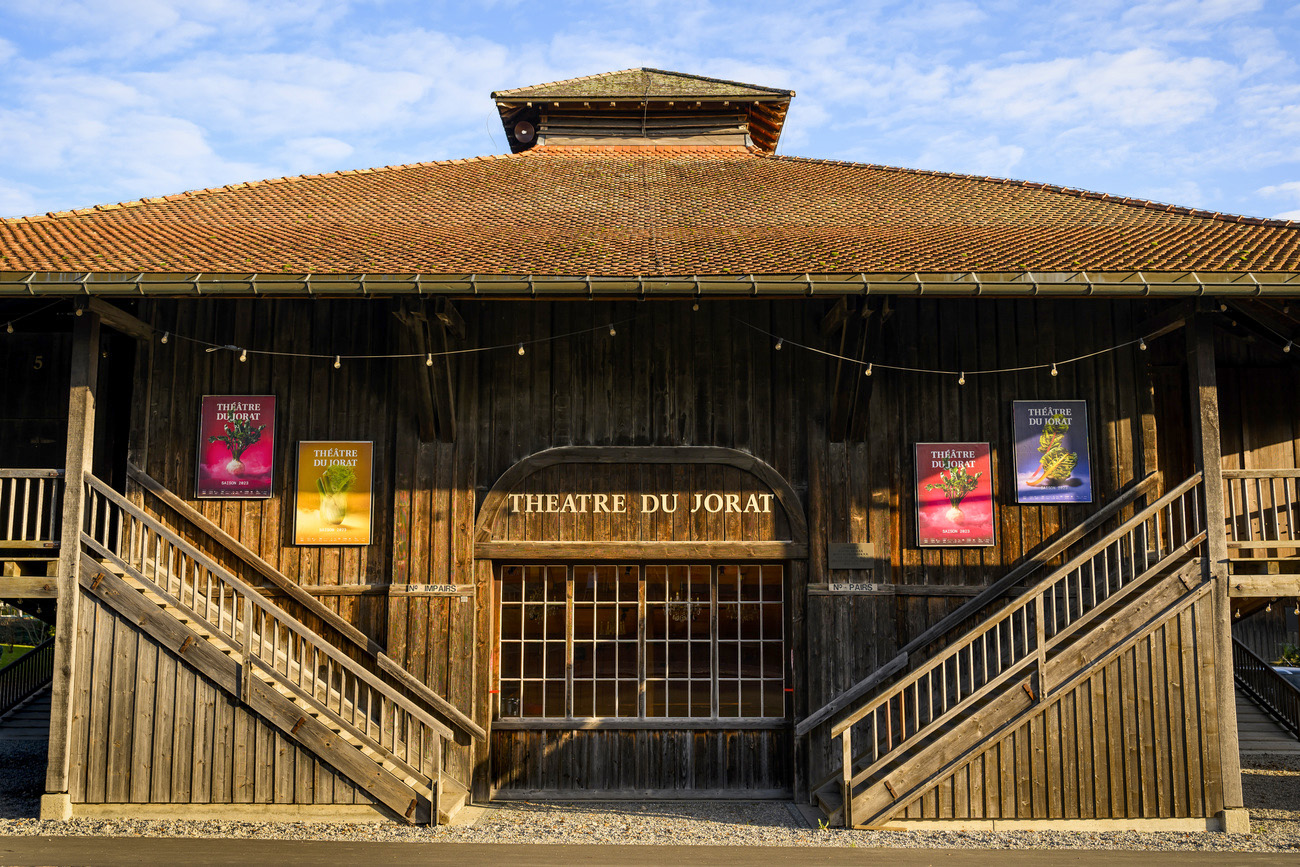
Mountain cantons hit by student brain drain

Cantons without universities are losing up to SFr55 million ($40 million) a year because of a student brain drain.
A recent study revealed that students who leave their home canton to study rarely return after graduation, representing a huge loss in terms of investment and future taxes.
The report by the Swiss Group for Mountain Regions found that in one area – Prättigau in canton Graubünden – 83 per cent of people who left the valley to study at university have not returned to the canton. They live, work and pay their taxes elsewhere.
According to the study, the cost of university education – for those cantons which do not provide it – runs to between SFr9,500 and SFr46,000 per student per year. This adds up to a loss of SFr27 million in educational “investment”.
At least another SFr27 million in tax revenue and consumer spending is believed lost each year as a result of the brain drain. And the bill does not even include study grants allocated to students, nor expenditure on their pre-university education.
Cash drain
The Swiss Group for Mountain Regions says the migration of highly qualified people is increasingly acting as a barrier to the development of outlying parts of Switzerland.
“These figures should act as a spur to reforming the funding system and to reviewing certain federal regulations,” says director Thomas Egger.
“So far, the true scale of the flows of funds associated with the brain drain has been underestimated.”
It is a message to the political world but also to the university cantons which, in recent years, have repeatedly tried to increase contributions from non-university cantons.
Lack of opportunity
However, the survey also revealed that a good 80 per cent of leavers would be willing to return to their cantons of origin if they had the chance. So why are they not doing so at present?
“The first reason is purely economic,” explains Thomas Egger. “Often, those wishing to return cannot do so, because jobs commensurate with their qualifications simply do not exist.”
”The second reason stems from the social relationships – and long-term relationships – which develop during university years.”
Many do not relish the idea of starting again from scratch, especially if their partners are unwilling to move.
Economic regeneration
While the second reason is hard to counter, Egger says efforts should be made to tackle the first.
“The cantons must make a commitment to creating attractive jobs,” he stresses.
“There are positive examples to show that this is not impossible, such as the Institute of Phyto-Pharmacology in Olivone, Ticino, or the microtechnology park which has opened in canton Obwalden.”
Swiss Federal Railways has transferred its Contact Centre to Brig-Glis in canton Valais, confident that there would be no difficulty in finding qualified staff.
Egger concedes it is only natural that the more remote regions should lose inhabitants to areas which are more developed economically, industrially and culturally.
“But we must ask ourselves how far something is ‘natural’,” he says. “We cannot accept regional and federal policies which say: ‘Well, in the mountain regions we support agriculture and tourism, and that’s it.’”
swissinfo, Doris Lucini
Canton Valais has launched a research programme to find out why around 70 per cent of the canton’s students don’t return after graduation.
Cantons without universities spend between SFr9,500 and SFr46,000 per student per year.
There are three universities in the French-speaking part of Switzerland (Geneva, Lausanne, Neuchâtel), and five in the German-speaking part of Switzerland (Basel, Bern, Zurich, Lucerne, St Gallen).
Fribourg University is bilingual German-French. Since 1996 there has been a university in Italian-speaking Ticino, with its main base in Lugano. There are Federal Institutes of Technology in Lausanne (EPF) and Zurich (ETH).
The universities are relatively small. In Zurich, the university and the ETH have a combined total of around 20,000 students. 11,000 study in Geneva.

In compliance with the JTI standards
More: SWI swissinfo.ch certified by the Journalism Trust Initiative






































You can find an overview of ongoing debates with our journalists here . Please join us!
If you want to start a conversation about a topic raised in this article or want to report factual errors, email us at english@swissinfo.ch.